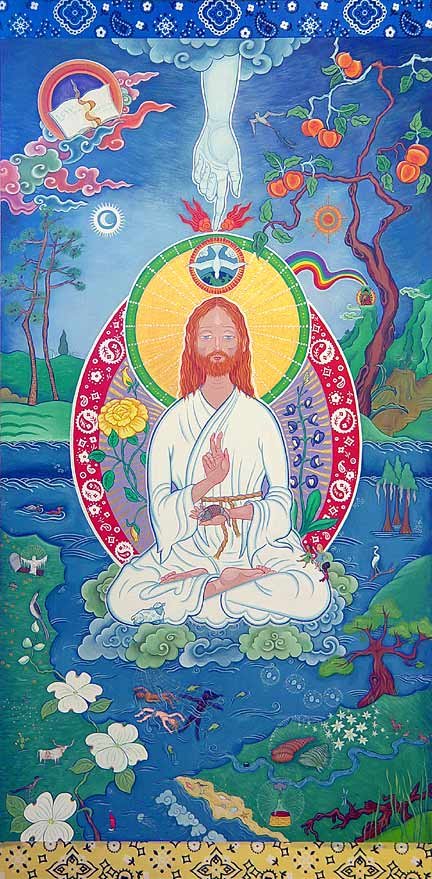I am
There is no "I".
Or
“I” is the ground of being.
What do we mean by "I"?
“I do not experience: I am experience, I am not the subject of an experience: I am that experience. “I am” awareness. Nothing else can be I or can exist.”
“I am the way and the truth and the life.”
I think. I know. I believe. I feel. I sense.
I am 33. I am a man. I am a British citizen. I am married. I am many different things.
But none of these are essential to me. I evidently appear to the world as these things. And if you knew me, you would know me in these ways. There is however one thing which is essential to me, my being - the fact that I am experiencing anything at all.
Anything experienced is not really “I”. The body is something that “I” experience. Thoughts “I” experience. Emotions “I” experience. These all make up my pseudo sense of self.
“I” then, is used in several different ways. “I” can be used in a personal or subjective sense. This is the “I” we use when talking about thoughts, beliefs, and feelings. But “I” can also be used in a deeper, essential sense; this “I” is the one who is doing the experiencing. Our eternal witness who silently watches the ceaseless drama of thought, belief, and feeling.
Though the various “I am…” statements refer to transitory things, which is to say, things that are capable, to varying degrees, of change, or revision, the essential “I” never changes.
One could say that this essential state is not really an “I” at all, but rather a negation of “I”. After all, Buddha himself spoke of there being “no-self”, no soul, no essential “I”. But is that not merely a semantic pitfall?
Is it not the very same non-dualistic ground of being that we all reach when we delve beneath the tumult of experience, that state beyond language and concept? We’re trying to speak of something beyond words. An impossible, yet necessary task, in the same way that the poet invokes a sense of things more than an idea, so likewise, we are left attempting to invoke a sense of that something beneath our illusory self.
For although we all have an array of subjective experiences, and a different set of “I am…” statements to our name, we also experience those “I am…” statements in a plethora of different ways. My experience of being a British Citizen is probably entirely unique to me. Whereas our (for lack of a better word) “experience” of the essential “I” is one and the same.
It is my sense that this “experience” is a something, rather than a nothing. It is a state. As such, to speak of it as “I”, seems to me more fitting than not.
In my previous article, I spoke about the John passage quoted above, noting that ‘the Way’ is often used by liberal Christians as a means of interpreting the passage in non-exclusivist terms. Upon further reflection, it occurs to me that a similar move can be made by focusing on any of this passage’s given parts, ‘the truth’, ‘the life’ and ‘I Am’.
Given my topic here - ‘I Am’ shines forth as particularly significant, to which “I” does Jesus speak? His illusory “I”, or his essential “I”?
His subjective “I”, or our universal “I”?
If the latter, then perhaps we could take the passage to mean that
our essential “I” is the only way to the truth and the life.
Perhaps we could take yet another step, and assert as many have , that it is this “I”, this universal “experience” of our essential “I”, that lies at the root, or is the seed, from which all religion and spirituality emerges.
The wellspring of all wisdom.

